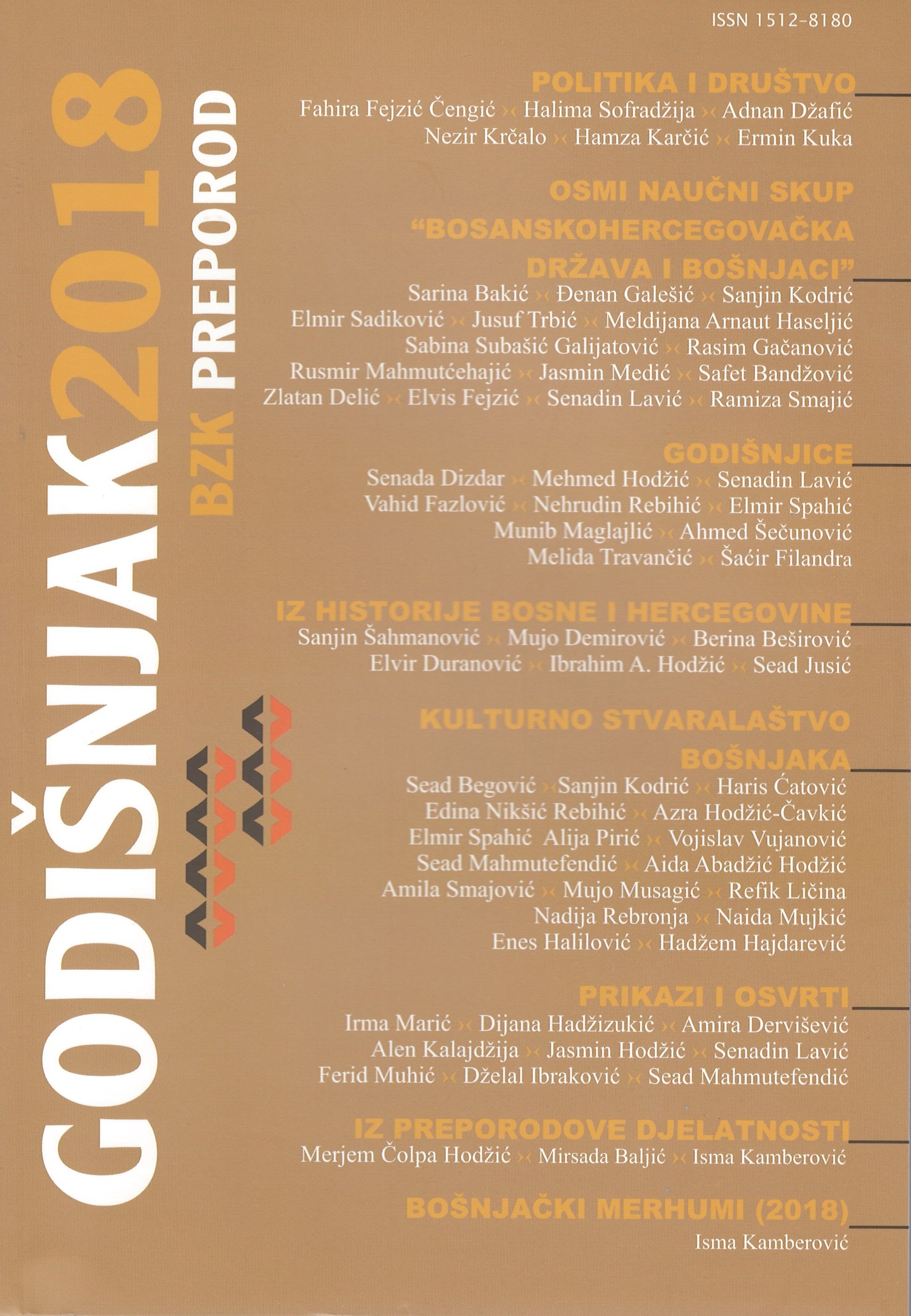Sto i četrdeset godina od rođenja Husage Ćišića Ćišić, Husein Husaga (Mostar, 15. decembra 1878. – Mostar, 30 august 1956.)
ONE HUNDRED AND FORTY YEARS SINCE HUSAGA ĆIŠIĆ’S BIRTH (Ćišić, Husein Husaga (Mostar, December 15, 1878 - Mostar, August 30, 1956)
Author(s): Senadin LavićSubject(s): Politics / Political Sciences, Political history, 19th Century, Pre-WW I & WW I (1900 -1919), Interwar Period (1920 - 1939), WW II and following years (1940 - 1949)
Published by: Bošnjačka zajednica kulture "Preporod"
Keywords: Bosnia; Bosniaks/Bosnians; Bosnian people; Bosnian identity; anti-fascism; sovereign state;
Summary/Abstract: Undoubtedly, Husein Ćišić was one of the most interesting persons in Bosnian history of the 20th century, who with his intellectual power denied all the subversives of the communist system towards Bosnia and Bosniaks. He steadily cherished the high moral principles in his life. This was especially evident in October 1941, during the Second World War, when he was the initiator and signatory of the Resolution of the citizens of Mostar condemning the persecution, the robbery of property, killing and deportation of the Serbian and Jewish population into concentration camps of death by the Quisling Ustasha authorities. In that Mostar Resolution, it was unequivocally pointed to the crimes of the NDH and the fascist idea of "pure Croatian territories". He was a convinced and persistent anti-fascist. In the anti-fascist struggle of the people of Bosnia and Herzegovina during the Second World War he gave two of his sons, Midhat and Husref Ćišić. It should be reminded in particular that Ćišić responsibly approached to the clarification of the "paradox" about Bosnia and Bosniaks. Namely, that was a problem that was shown in this way: the country and the state of Bosnia have a millennium tradition and memorial, and in the 20th century, in interpretations of Serbian and Croatian nationalists, it was claimed that "there is no Bosnian people", "Bosnian history" or "Bosnia has no its people and the right to sovereignty." This attitude Ćišić could not accept and reacted on December 5, 1945, against the unprincipled attitudes of the KPJ (Communist Party of Yugoslavia) with regard to the Bosnian national content, and submitted to the Ministry of Constituent the application demanding that the Bosnian people be presented in the emblem of the future Federal state clearly and recognizable by the sixth torch. He referred to the conclusions of the Second Session of AVNOJ, according to which each member of Federal Yugoslavia has the right to its national name - this right has been denied to the Bosnian member of the Yugoslav federation. That Ćišić’s application-request was skilfully ignored and there was no mention of it in the work of the constituent bodies of the future Yugoslav federation
Journal: Godišnjak Bošnjačke zajednice kulture »Preporod«
- Issue Year: 2018
- Issue No: 1
- Page Range: 394-403
- Page Count: 10
- Language: Bosnian

